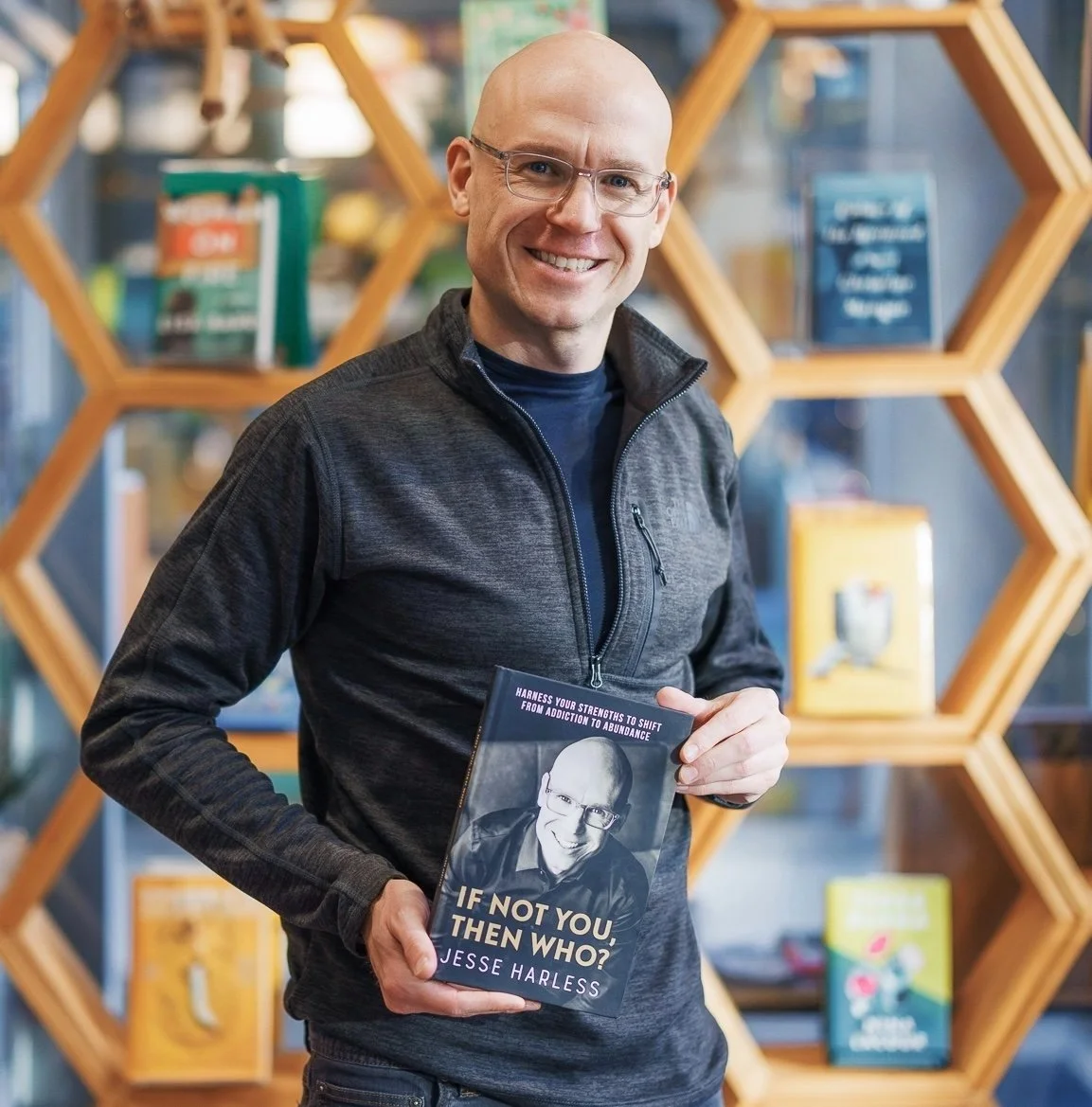What is addiction?
Dr. Gabor Mate defines addiction as any behavior in which a person finds temporary relief or pleasure and therefore craves, but that in the long term causes them or others negative consequences, and yet the person refuses or is unable to give it up.
With Gabor’s definition of addiction in mind, have you ever had an addiction in your life?
Have you ever used food, sex, work, tv, the internet, overspending, people pleasing, alcohol, caffeine, or procrastination to escape, numb your emotional pain, or soothe yourself?
I certainly have.
In the last 17 years, many men and women have shared their struggles with numbing out emotional pain. One of the most common and least talked about ways is with internet pornography. Many of these individuals have over a decade of recovery from drugs and alcohol but still have struggled to stop watching pornography. Why? For some, it’s due to sexual trauma in their past. For others, it’s a way to find pleasure, arousal, or cope with stress, boredom, or tension. For most, it’s how widely available and accessible pornographic content is on their cell phone, tablet, or computer. Add in the highly addictive nature of present-day internet pornography, and things start to make sense. Over time, those massive hits of dopamine you’re experiencing when watching porn (similar to a hit of cocaine) can lower your baseline dopamine, which may eventually lead to issues such as depression, anxiety, and low esteem.
Let’s check out some stats about internet pornography:
Today, porn sites receive more website traffic in the U.S. than Twitter, Instagram, TikTok, Netflix, Pinterest, and Zoom combined.
One porn site alone gets more visitors per site than Netflix and Amazon.
1 in 5 mobile searches are for pornography.
For adults, an estimated 91.5% of men and 60.2% of women report that they’ve consumed porn in the past month.
According to a study published in the Journal of Adolescent Research, about half (49%) of young adult women agree that viewing pornography is an acceptable way of expressing one’s sexuality.
74 percent of men who report having watched pornography in the past 24 hours say they have felt self-conscious or insecure in the past week.
56% of divorces involved one party having “an obsessive interest in pornographic websites.”
A nationally representative estimate of U.S. youths (ages 14 to 18) exposed to pornography: 84.4% of males and 57% of females.
The first exposure to pornography among men is 12 years old, on average.
Do these stats surprise you?
What do you suppose internet pornography does to a child’s brain development?
I started watching internet pornography at 11 years old. My curiosity eventually led me to escapism and secrecy. When I was angry, stressed, depressed, frustrated, or feeling less than, I could find temporary relief with internet porn. In adulthood, I would stop at times. I could go 400+ days, but eventually, I would come back. One of the primary reasons I kept coming back was not addressing the root cause.
At the source was the shame about my body. Hurtful comments as a child and teenager stuck to my nervous system, mind, and body like glue. Like when I played football, and the team captain said, “You’re so skinny,” or the time swimming in high school when a boy mentioned how boney my chest looked. I created a story and script I subconsciously repeated that I lacked safety in my body and that I could easily be hurt. I would dissociate from my body and feelings. Numbing out with internet porn was one of my methods to relieve the unresolved emotions.
It was not until I admitted that internet porn negatively impacted my mental, relational, and emotional health that I could start the deeper work.
Below is a list of what I’ve found helpful in abstaining from internet pornography.
Here’s what’s helped me:
Sharing with safe people
Hiring a coach
Trauma-informed therapy
Deep inner work
Meaningful social connections
No television after 9:00 PM
Books about tantra and internet porn addiction
Courses on sexual self-mastery
90-day reboot
Self-care
Sleeping well
Eating well
A morning routine
Night time rituals
Using a daily planner
Tracking goals and habits
Doing things that make me feel supported, connected, joyful, grateful
Doing things outside my comfort zone daily
Compassionate inner dialoguing with my feelings and beliefs
Self-compassion and forgiveness
Cold showers and cold plunges
Self-regulation techniques like breathing, mindfulness, prayer, and meditation
Daily walks and movement
Stretching
Jiu-jitsu
The benefits of stopping have been better mental health, more energy, confidence, less anxiety and depression, self-discipline, and more positive risk-taking. Increased confidence leads to better decisions and gets me out of my comfort zone, benefiting my relationships and business. I seek more social connections with friends and peers. I laugh more and show my humor without being afraid of being rejected or embarrassed.
This post is not to judge someone's behavior as shameful or wrong, nor is it to judge porn performers. I’ve seen articles on how internet porn can enhance physical and mental health and the alternatives, such as “ethical porn.” Maybe internet porn is considered “normal” and healthy today. But I intend to illuminate how mainstream internet pornography impacts our children, relationships, attention, energy, and feelings about ourselves. It’s to point out that “the most obvious, ubiquitous, important realities are often the ones hardest to talk about.” (The Myth of Normal) What appears to be “normal” and seldom talked about in our society must be addressed and brought out of the shadow to light. I choose to be vulnerable and share my experience so we can start to bring awareness and initiate safe conversations.
What are your thoughts?
Sources and Resources:
https://fightthenewdrug.org/by-the-numbers-see-how-many-people-are-watching-porn-today/
https://enough.org/stats-youth-and-porn
https://www.covenanteyes.com/pornstats/
https://ifstudies.org/blog/how-prevalent-is-pornography
https://businessinthenews.co.uk/2020/07/19/pornhub-receives-more-website-traffic-than-amazon-and-netflix-new-research-reveals/?amp=1
https://bookauthority.org/books/best-sexual-addiction-books
https://jamanetwork.com/journals/jamapsychiatry/fullarticle/1874574
https://www.sciencedirect.com/science/article/abs/pii/S1743609515334354?via%3Dihub
https://www.utahvalleypsychology.com/pornography-addiction-science-fact-or-science-fiction-2/
https://blockerx.net/blog/dopamine-and-porn/
https://www.yourbrainonporn.com/relevant-research-and-articles-about-the-studies/dopamine-receptors/
https://drhollyrichmond.com/services-2/
#addiction #shame #porn #pornography #askforhelp #sex #sexaddiction #dopamine #dysmorphia #gabormate #themythofnormal #shadow #light #emotional #pain #soothe #stats #abnormal #didyouknow #relief







